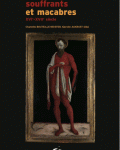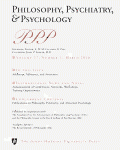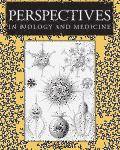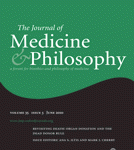Parution – Corps sanglants, souffrants et macabres
 Kjerstin Aukrust et Charlotte Bouteille-Meister (eds.), Corps sanglants, souffrants et macabres, La représentation de la violence faite au corps en Europe , XVIe-XVIIe siècles, Actes de colloque, Presses Sorbonne Nouvelle, 2010, 382 p.
Kjerstin Aukrust et Charlotte Bouteille-Meister (eds.), Corps sanglants, souffrants et macabres, La représentation de la violence faite au corps en Europe , XVIe-XVIIe siècles, Actes de colloque, Presses Sorbonne Nouvelle, 2010, 382 p.
Sommaire
Introduction
La figuration et ses risques : la beauté de l’horrible
Paola Pacifici
Chairs mortifiées. Connaissance anatomique et esthétique de la
souffrance dans la représentation des martyrs au XVIe et au XVIIe siècle
Lise Leibacher-Ouvrard
Du « théâtre de cruauté » à la discipline de la dissection : les OEuvres anatomiques (1629) de Jean Riolan
Pierre Martin
Portrait du Dr Ruysch en boucher subtil
Marie-Madeleine Fragonard
Une forêt de croix : Biver ou l’archéologie entre épouvante et compassion
Jean-Louis Claret
Des dangers de représenter « au vif » le spectacle sanglant
Le corps de l’âme : souffrances corporelles, souffrances spirituelles
Kjerstin Aukrust
J’ouvre mon estomac : Agrippa d’Aubigné et le corps macabre
Rémi Vuillemin
My Heart was Slaine : le pétrarquisme des sonnets de Drayton entre blessure d’amour
et mise à mort
Gro Bjørnerud Mo
Corps sanglants, souffrants et pétrifiés. Une lecture de François de Malherbe
Antoine Roullet
De la douleur au sang : la sanctification par la discipline
Antoinette Gimaret
Maladie, Imitatio et conversion : le corps souffrant dans les recueils de Muse dévote du premier XVIIe siècle
La mise en scène du supportable et de l’excès
Pascal Bastien
Le droit d’être cruel : l’exercice de la cruauté dans l’ancien droit français
(l’exemple de Paris au XVIIe siècle)
Nicolas Cremona
Les histoires tragiques du début du XVIIe siècle : vers un texte-spectacle
Mariangela Tempera
« Entre […] la reine avec la tête de Suffolk » : bercer des corps démembrés dans Orbecche, Henry VI (deuxième partie) et Titus Andronicus
Romain Jobez
« Bodies that splatter » – Shakespeare sur la scène allemande de la première modernité
Christophe Couderc
Entre Comedia de santos et auto sacramental : la passion christique de El niño inocente de la Guardia de Lope de Vega
Christian Biet
La souffrance scénique du martyr au début du XVIIe siècle
Interpréter l’émotion : constructions et détournements de sens
Frank Lestringant
Le martyre, un problème de symétrie : l’exemple des jésuites de Nouvelle-France
Kristine Kolrud
Théodore de Bry et l’utilisation politique du cannibalisme
Charlotte Bouteille-Meister
Les cadavres fantasmés des Guise : les corps sanglants du Balafré et de son frère
dans les stratégies de représentation des assassinats de Blois
Fabien Cavaillé
Rhétorique des cadavres : pitié, piété et ironie dans trois tragédies d’Alexandre Hardy
Mathieu Mercier
La représentation de l’assassinat d’Henri III à l’aube de l’absolutisme monarchique :
de l’exposition du corps soumis à la violence théophanique à l’escamotage d’une victime embarrassante
Valérie Auclair
Le sens à l’épreuve du sang. Les interprétations des Massacres du Triumvirat
d’Antoine Caron (1566) par Michel Leiris et Gustave Lebel
Marie-Madeleine Fragonard
Conclusion





